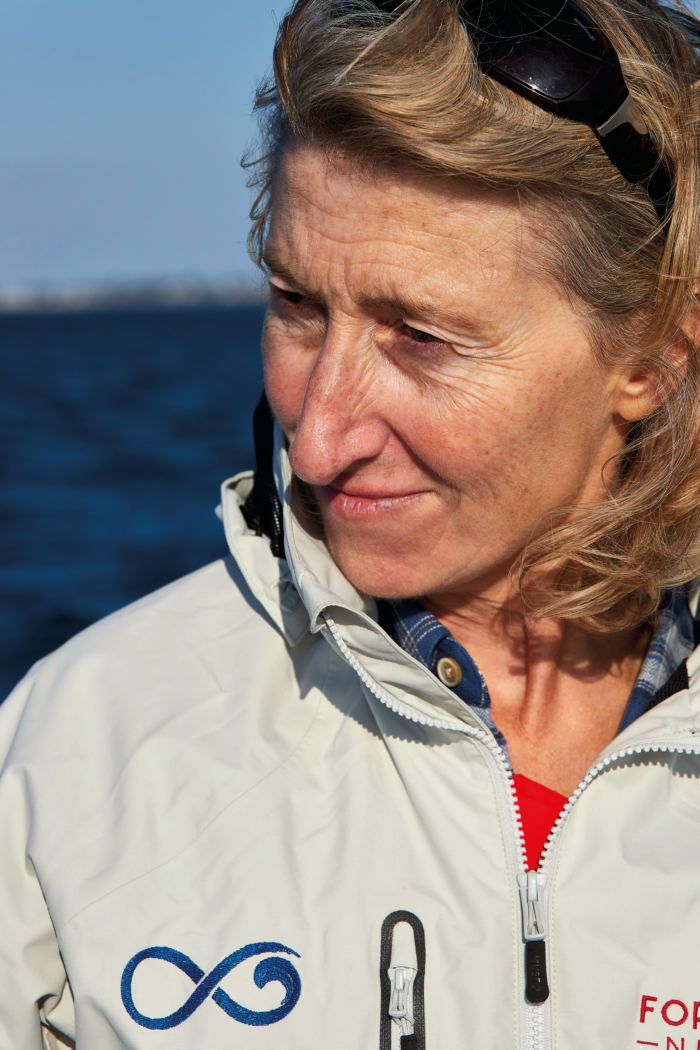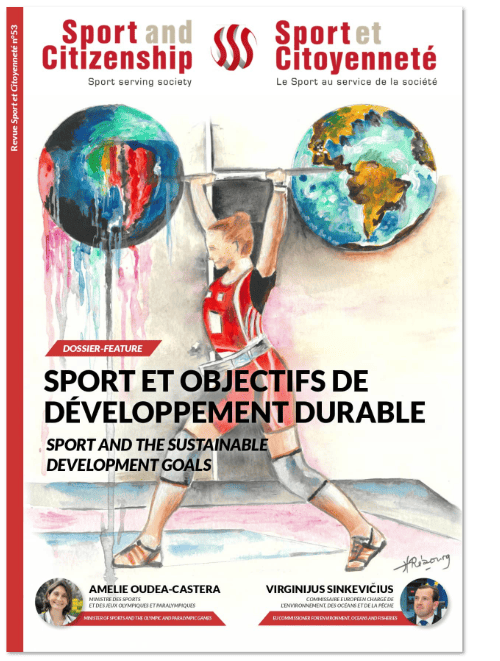“Put the spotlight on maritime issues”
Yachtswoman, journalist and now a Member of the European Parliament, Catherine Chabaud is a very committed woman. Her latest campaign: to get the ocean recognised as common property. In November she will be setting off on the Route du Rhum, 20 years after hanging up her oilskins, in order to raise public awareness of this issue.
 You have always been committed to defending the environment, particularly the oceans. In what way is your experience as a sportswoman at the root of this political engagement?
You have always been committed to defending the environment, particularly the oceans. In what way is your experience as a sportswoman at the root of this political engagement?
CC: Ocean racing, like underwater diving, plunged me into the marine environment and showed me its richness, but also the impacts it is subjected to. 30 years ago, I saw the first marine waste in the middle of the ocean, when I made my first solo voyage. At that time, nobody talked about this scourge. I was very soon sure that, one day, I would have to get involved to do something about it. I didn’t yet know how. With the passage of the years and my various commitments over 20 years, it became clear that political involvement was essential as a concrete means of implementing solutions more quickly. Media coverage of yachtsmen and ocean races do however provide the chance to get messages across, and that is what convinced me to take to the sea again. With the Route du Rhum, I hope to put the spotlight on maritime issues.
You support the “Ocean Common Property” initiative. What are your aims and why do you think Europe is the right level for action in this area?
CC: There is only one ocean, and in the light of all it does for humanity, it is the common property of all of us. This is not a legal but a moral notion, which I want to use to motivate individual and collective responsibility more quickly. All stakeholders need to be made aware of the importance of the ocean: it regulates the climate, provides half of the oxygen needed by Humanity, absorbs a third of CO2 emissions, feeds populations and allows coastal regions to develop their economies. Thanks to this appeal launched by us four years ago, this preoccupation is now relayed on the international scene. The European Union is the right level because it can have a real impact. Without this leadership we would not carry the same weight at the international level. We saw its full weight during the French presidency of the EU, when maritime issues were finally placed on the international agenda.
The impacts of climate change on sport are beginning to be documented. How do you think we can make sport greener and more sustainable?
CC: A lot has already been done in the last few years, through “sport and sustainable development” schemes, but a lot remains to be done. In sailing, for example, more needs to be done with specifications for races and boats. Even with sailing, the boat construction, the materials used, and the way races are organised are still important. In our sport, which has a “clean” image, greater sobriety would be necessary to be fully in tune with our values.
Interview by Sylvain Landa
Find this article and more in our special magazine “Sport and ODD”!







 INSCRIPTION
INSCRIPTION
 CONTACT
CONTACT FACEBOOK
FACEBOOK